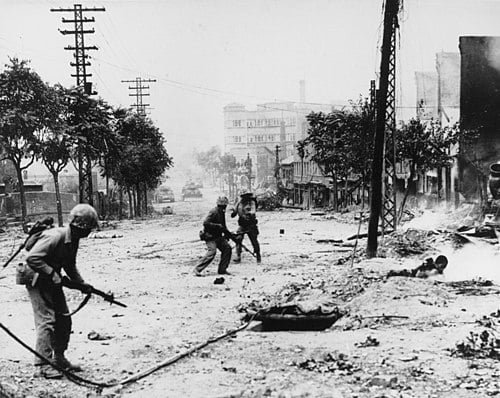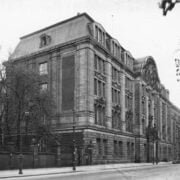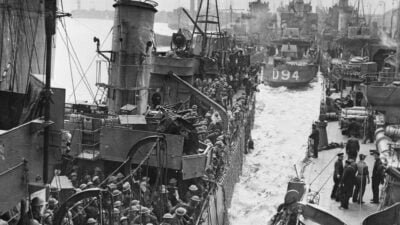The Communist Revolution in China was an event of monumental proportions that reshaped the history, society, and politics of the country, leading the nation towards a new era under communist rule.
Also check out: Korean War: A Period that Shaped the Destiny of the Peninsula
Fragility, Occupation, and Discontent
Before the Communist Revolution, China was immersed in a period of crisis and instability that played a crucial role in laying the groundwork for the rise of the Chinese Communist Party.


In the early 20th century, China faced a series of challenges that undermined the authority of the imperial dynasties. The Qing Dynasty, which had ruled for centuries, was weakened and discredited, and the country faced foreign invasions, especially by powers such as Japan and Western nations.
The post-Qing dynasty period was characterized by internal conflicts and fragmentation. Civil war, political divisions, and power struggles led to a lack of national unity, weakening the country and undermining central authority.
Economic and Social Fragility
China faced serious economic and social problems. Widespread poverty, social inequality, famine, and a lack of opportunities exacerbated discontent among the population. The peasant classes, in particular, faced extremely precarious conditions.
In addition to internal strife, China faced foreign pressures and occupations. Japanese occupation, especially during the Second Sino-Japanese War, deepened the country’s agony, resulting in a sense of humiliation and the pursuit of solutions to restore national dignity.
Leadership of Mao Zedong and the Communist Revolution in China
The leadership of Mao Zedong played a crucial role in the Chinese Communist Revolution, consolidating the Chinese Communist Party (CCP) and guiding China towards a new era.
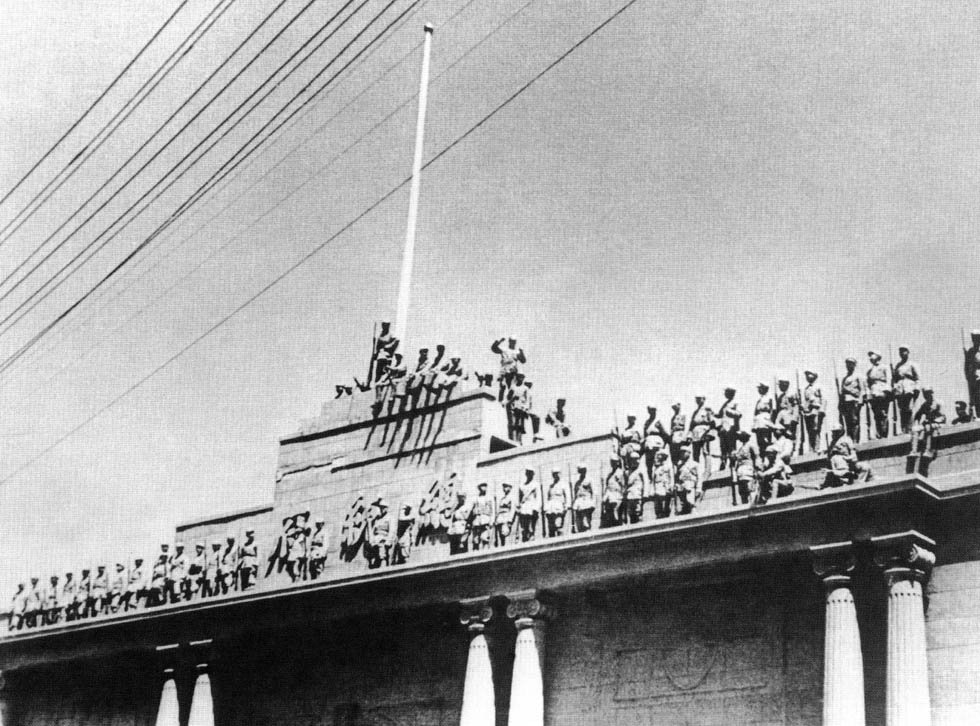

Long March and CCP Consolidation
The Long March, a strategic journey undertaken by the CCP to escape the encirclement of nationalist forces, strengthened Mao Zedong’s position. This 10,000 km march through hostile territories solidified Mao’s leadership and established the CCP as a force to be reckoned with.
Victory of the Communist Revolution in China
The Chinese Civil War was a prolonged conflict between the CCP and the nationalist government led by Chiang Kai-shek. With military skill and popular support, Mao led the CCP to victory in 1949. The founding of the People’s Republic of China marked the beginning of a communist government.
Mao implemented innovative policies to consolidate power. Agrarian reforms redistributed land, gaining the support of the peasant masses, and the nationalization of industries and agricultural collectivization were important steps in the transition to a socialist system.
Maoist Leadership and Ideology
Mao’s charismatic leadership and his Maoist ideology, emphasizing the importance of permanent revolution, played a crucial role in mobilizing and engaging citizens. His writings and speeches were often used to unify and inspire the Chinese people towards communist goals.
Consolidation of the Communist Revolution in China
After the proclamation of the People’s Republic of China in 1949, the communist government led by Mao Zedong initiated a series of reforms and policies aimed at transforming Chinese society and economy.
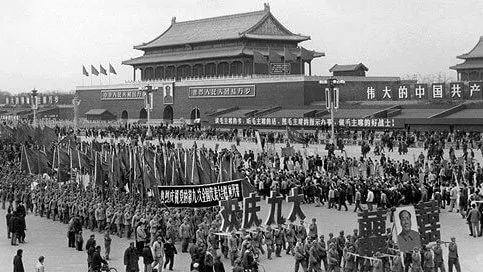

Agrarian Reforms and Collectivization
Agrarian reforms were one of the first policies implemented by the new government. They aimed to redistribute land from landlords to peasants, eliminating feudal structures and empowering the rural population. Agricultural collectivization later brought small farms together into cooperatives, aiming to increase efficiency and production.
The government launched modernization campaigns to promote industrial development. Initiatives like the Great Leap Forward, although aimed at accelerating economic growth, had mixed results, resulting in humanitarian and economic disasters.
The Cultural Revolution
The Cultural Revolution was a campaign launched by Mao to reaffirm ideological control and reassert the role of communism in society. However, it led to a period of turmoil, persecutions, and repression that deeply impacted culture, education, and politics.
Foreign Policy and International Relations
The communist regime sought to establish relations with other countries, maintaining a delicate balance between the Soviet Union and Western nations. Tensions with the U.S., evidenced by the Korean War and rapprochement with the Soviet Union, marked China’s foreign policies during this period.
Legacy of the Communist Revolution in China
The Communist Revolution in China, led by Mao Zedong and the Chinese Communist Party, left a complex legacy that influenced not only Chinese history but also global geopolitical dynamics to this day.
Economic and Social Transformation
The Communist Revolution played a fundamental role in the economic and social transformation of China. Despite setbacks and disasters during the implementation of policies like the Great Leap Forward and the Cultural Revolution, later reforms contributed to economic growth, poverty reduction, and the establishment of a solid industrial base.
Rise of China as a Global Power
The legacy of the Communist Revolution is also linked to the rise of China as a global power. Modernization and economic opening policies implemented after Mao’s era transformed China into a world-scale economy, playing a significant role in the global economy and international relations.
The Communist Revolution established a strong ideological foundation that continues to influence politics and government in contemporary China. Although the economy has liberalized in many aspects, political control remains centralized, maintaining the dominance of the Chinese Communist Party over the country.
Contemporary Tensions and Challenges
The legacy of the Communist Revolution is also reflected in current challenges. Issues such as human rights, civil liberties, ethnic and territorial tensions, as well as China’s position on the global stage, are direct outcomes of the Communist Revolution and its past policies.
The Communist Revolution in China left a multifaceted legacy that continues to shape the country and the contemporary world. Its influence is present in economic, political, cultural, and social aspects, playing a significant role in international relations and the evolution of China as a global actor.



